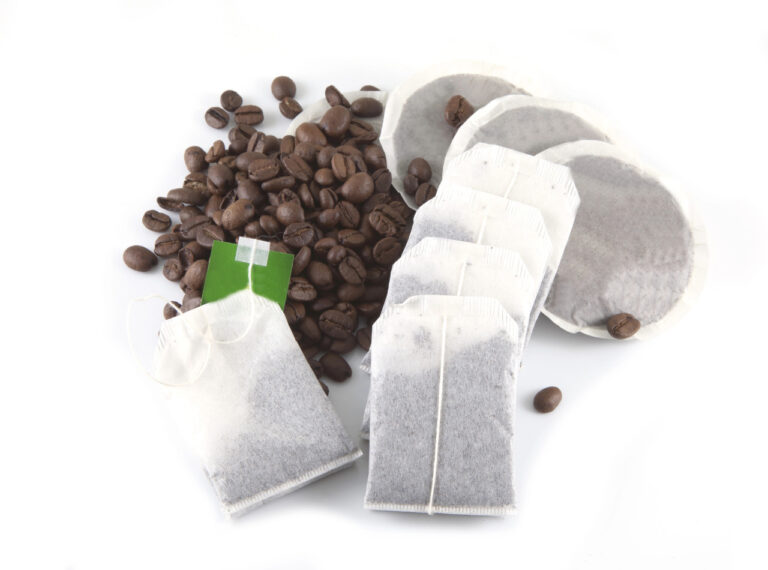Coffee and tea are prepared and consumed in different ways, and thus, bagged coffee is uncommon.
Here are some key reasons:
- Brewing Method: The traditional brewing method for coffee requires hot water to pass through the ground coffee to extract its flavors effectively. This process is best achieved using a coffee maker or a manual brewing method such as the French press, where the water can fully saturate the coffee grounds.
- Extraction Time and Control: Coffee extraction is a more precise process compared to tea. The flavor of coffee depends significantly on the extraction time and the temperature of the water. Coffee in bags would offer less control over these variables, potentially leading to an under-extracted (weak) or over-extracted (bitter) brew.
- Grind Size: Coffee is more sensitive to grind size than tea is to leaf size. The size of coffee grounds affects the extraction rate and flavor. In a bag, controlling this would be more challenging, and the result might not be as consistent as using a coffee maker designed for a specific grind size.
- Freshness and Aroma: Coffee is best enjoyed fresh and has a shorter shelf life than most teas once it is ground. The grinding and packaging process for coffee bags would expose the coffee to more air, accelerating the loss of its delicate aromas and flavors.
- Tradition and Consumer Expectations: The tradition and culture around coffee also play a role. Consumers expect coffee to be brewed in certain ways, and the equipment and methods for brewing coffee have evolved based on these expectations.
In summary, while coffee in bags like tea is technically possible, the differences in brewing requirements, flavor extraction, grind size, and cultural expectations make it less feasible and popular.
It’s worth noting that coffee bags do exist, similar to tea bags, for those seeking such a convenience, but they generally don’t provide the same quality of flavor as freshly ground and brewed coffee.

